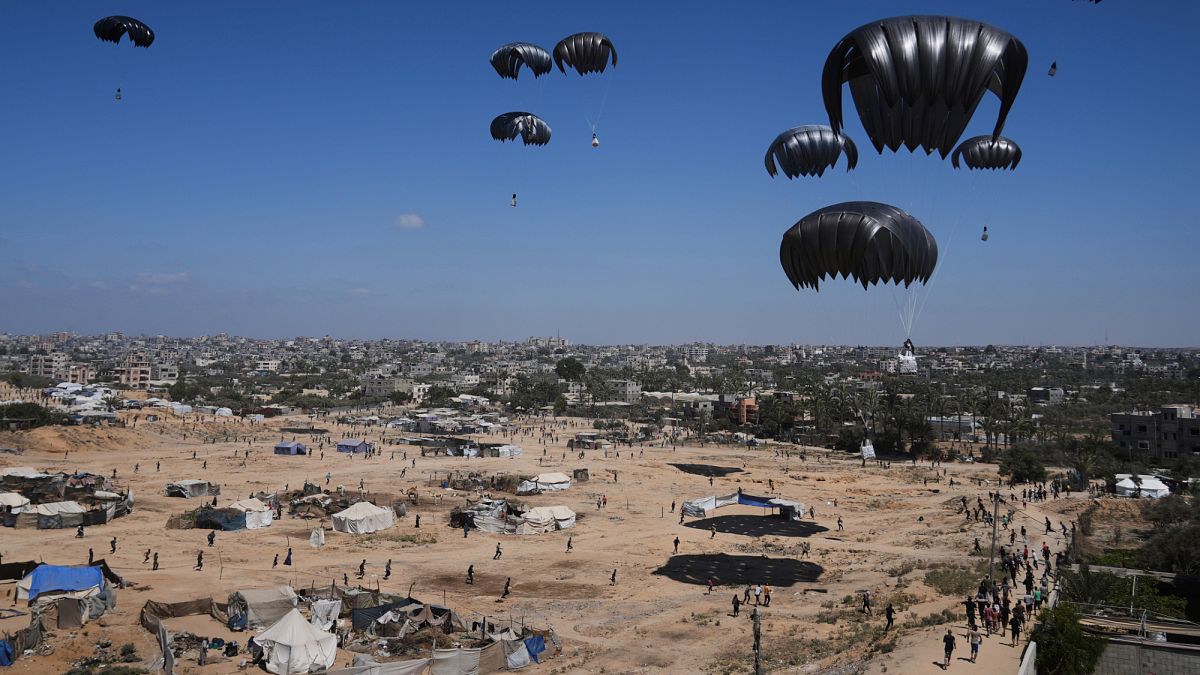

In a region marked by intense conflict and humanitarian needs, recent developments highlight the precarious circumstances faced by the residents of the Gaza Strip. Humanitarian missions continue to strive for effective aid delivery amid challenges, as complex socio-political dynamics unfold.
This week, planes were poised to deliver desperately needed humanitarian aid to the Gaza Strip, attempting to alleviate the struggles of its people. However, the operation was shadowed by reports of fatalities, with at least 18 individuals reportedly killed by Israeli fire. According to hospital sources in Gaza, these tragic incidents occurred as many ventured out to seek food during this tense period.
Efforts to provide essential aid have been consistently hampered by the risks involved in overland deliveries. To address these issues, aerial drops were employed to circumvent the constraints on aid access, demonstrating the global humanitarian community’s commitment to supporting those in need. Yet, the risks remain palpable, as highlighted by the recent casualties.
The broader geopolitical landscape further compounds the complexity of the situation. A visit by Steve Witkoff, the special envoy appointed by former U.S. President Donald Trump, underscores the international attention Gaza’s plight is receiving. His appearance at a distribution site backed by Israel and the U.S. underscores ongoing diplomatic efforts to mediate relief for the region’s embattled population.
Despite such efforts, the stark reality on the ground remains grim. The United Nations has reported that 1,373 Palestinians have perished while waiting for aid since late May. Of these, 859 individuals lost their lives near the humanitarian sites, while another 514 were victims along the routes taken by food convoys. This underscores the severe challenges faced by Palestinian civilians amid limited access to basic sustenance.
Internationally acclaimed Israeli author David Grossman has spoken out, expressing profound sadness over the escalating conflict. Grossman, who has long been an advocate for peace, felt compelled to describe the situation as genocide, marking a significant shift in his public stance. His heartfelt remarks reflect the local and global anguish over the ongoing crisis, posing the poignant question, “How did we get here?”
Meanwhile, tension persists not only in Gaza but also on a wider front involving Ukraine and Russia. Ukraine has launched strikes on a Russian drone storage facility and a military plant, as reported from the Samara Oblast region. Acknowledging the strikes, local governor Vyacheslav Fedorishchev confirmed damage to an industrial site, hinting at the continuous state of alert in the region.
Complicating matters further, Russian President Vladimir Putin has hinted at the deployment of hypersonic missiles in Belarus, a move that raises concerns across Ukraine and Europe. Such actions reinforce the intricate web of international relations, where military maneuvering and geopolitical strategies continuously shape the current climate.
These layered challenges demonstrate the need for a mindful approach to peace-building and dialogue, encouraging all involved parties to pursue harmonious resolutions. As the world watches, the hopes for tranquility rest upon dignified communication and cooperation, illuminating the path toward a more peaceful coexistence.
Source: {link}
